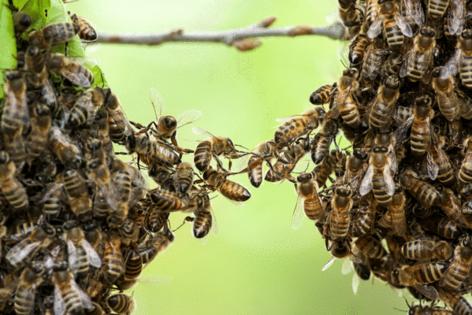Millions of honey bees killed in 'intentional' poisoning, Virginia beekeeper says
Published in News & Features
Millions of dead honey bees were found by a Virginia beekeeper in what he said was a calculated attack on his farm.
Sixty colonies of honey bees were fatally poisoned and “steel chains and locks” were found on the gates of the farm, Jerry Mattiaccio, owner of Rock Hill Honey Bee Farms in Stafford, said in an April 16 statement on Facebook.
Between 20,000 and 100,000 honey bees make up a colony, according to Clemson University’s College of Agriculture, Forestry and Life Sciences. Photos Mattiaccio shared on social media showed heaps of dead bees lying at the base of apiaries on his farm.
“None of these actions could be accidental,” Mattiaccio said in the post. “This was clearly intentional, hoping to injure my operation.”
The suspected poisoning will cost him about $20,000 in business losses, Mattiaccio told WRC-TV.
An officer responded to the incident at about 4 p.m. April 14, according to an April 15 Stafford County Sheriff’s Office incident report.
“A total of 50 hives were affected and the investigation is ongoing,” deputies said in the report.
Several people commented on Mattiaccio’s post, voicing their concerns over the honey bees.
“So senseless. Bees are having a hard enough time. I pray they capture the person or persons responsible and punish them to the fullest extent of the law,” one person said.
“This is not just a loss for you and your farm but honey bees are valuable to our eco system,” another person commented. “Killing these bees does not help with shortages of bees.”
Pollinators, like honey bees, are crucial to an estimated 35% of the world’s food crops, the USDA reported in 2022. In 2023, honey bees were worth nearly $350 million in production.
But honey bee colony losses in the U.S. have been steadily increasing and could reach up to 70% in 2025, entomologists at Washington State University said in a March 25 news release.
“Pollination demands haven’t gone down, so beekeepers face tremendous pressure to keep the same number of colonies to meet those needs,” Priya Chakrabarti Basu, assistant professor of pollinator health and apiculture, said in the release.
©2025 The Charlotte Observer. Visit charlotteobserver.com. Distributed by Tribune Content Agency, LLC.







Comments